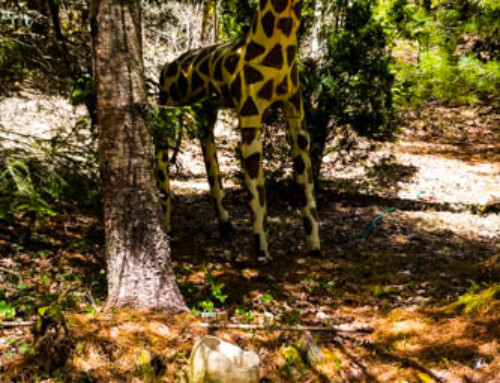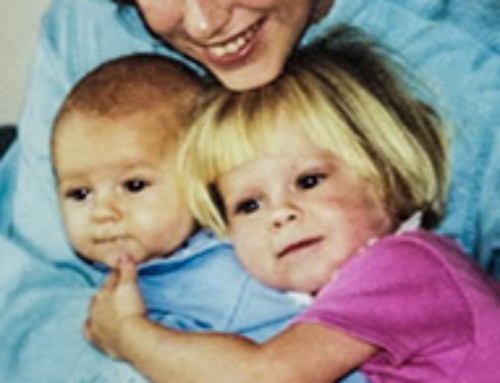Transitions: Pathways to Wholeness
“Change happens at any time, but transition comes along when one chapter of your life is over and another is waiting in the wings to make its entrance.”
William Bridges
Click on the + below to expand each section.
 I love being a Southerner. In the South, we make no bones about living life as the great narrative that it is. It is in our genes to make a story of everything, even radio commercials.
I love being a Southerner. In the South, we make no bones about living life as the great narrative that it is. It is in our genes to make a story of everything, even radio commercials.
“Only five minutes ago, you and your little girl were driving down the street, happy.
And, now CRASH…BOOM…BANG, You have had an “ac-ci-dent”! Call King and King Insurance.
Why did that little commercial stick with me for all these years? Having heard it repeatedly throughout my childhood, this little ditty embedded itself in my unconscious mind. Recently, when I started exploring the process of change and transition, it popped with the immediacy of a recently heard joke.
Why?
Because, that simple vignette follows the form of literature and life. We are driving along in our ordinary time, unselfconsciously following the pattern of our days. Life is predictable and known. Then, the world as we know it is turned upside down. Out of the blue, unforeseen forces interrupt our travel and life is altered, sometimes drastically. As commercials are meant to do, this one offers what we all really long for in life, insurance against the pitfalls.
In life there are no such guarantees. Instead, we follow the cycle known as the Hero’s Journey. In this classical pattern found in most literature from mythology to the modern novel, the mother/daughter dyad would try to resist the unwanted change. They would either deny it or bargain with life to cushion the blow. Then, they would either willingly accept the inevitability of change, or they would be dragged by the fates into the unwelcome intrusion into their otherwise happy lives. After a period of struggle, they would emerge into the new normal of their lives. Wiser, more accomplished, and equipped with new knowledge. In literature this motif is known as the Hero’s Journey.
In life it is the process of transformation. They are one in the same. When we come to see our lives as epics following this ancient pattern, we can enter into our own experience with a sense of adventure. The framework helps us to interpret life’s events as purposeful pathways to our potential wholeness. The transition we experience will still sting. But, making meaning out of our dilemma changes the experience of it.
I find it useful to consider these five stages in the Hero’s Journey:
Ordinary World | Call to Change | Resistance | Dark Night of the Soul | New Normal
 Sometimes life seems stable. There is sameness to our days. We get up, go to work, play or school depending on our age and stage. A rhythm underlies our lives, ordering them as if by the movement of a metronome.
Sometimes life seems stable. There is sameness to our days. We get up, go to work, play or school depending on our age and stage. A rhythm underlies our lives, ordering them as if by the movement of a metronome.
Even our problems are familiar. The same relationship challenges here, financial trouble there. Challenges, yes. But, their constancy constitutes a certain kind of comfort.
Ordinary world is the status quo of life. There is a predictable pattern to our days. Be it pain or pleasure, it is known. We know the angel or the devil with which we deal. In that familiarity we function with the confidence of the steady state in which we live.
We drive down the streets of our lives, happy or sad, expecting life to stay the same.
TRAVEL TIPS
- Build healthy relationships by spending time, communicating and relating with those you love.
- Seek help where needed to improve the quality of these relationships.
- Focus on faith building through study, prayer and meditation practices.
- Strengthen bonds to your community by contributing your time or talents.
- Be proactive in self-development in the physical, emotional, relational, spiritual and career aspects of your life.
- Be mindful of your blessings and the patterns that support your well-being.
- Be grateful.
 We want life to stay the same. It never does. Sometimes, this stable period we refer to as ordinary time is interrupted subtly by the changing needs of our growth and development. A pleasant pre-teen turns surly when the natural tide of human development catapults her into the hormonal whirlwind of adolescence.
We want life to stay the same. It never does. Sometimes, this stable period we refer to as ordinary time is interrupted subtly by the changing needs of our growth and development. A pleasant pre-teen turns surly when the natural tide of human development catapults her into the hormonal whirlwind of adolescence.
Or, as adults we are productively engaged in building career, family, and identity when the upheaval of mid-life causes us to question the purpose, desire, and trajectory of our lives. Retirement offers itself as a possibility and we quake at the threat to the identity we have so carefully crafted.
These are the internal, built-in beckons to change that propel us toward growth. They are nature’s trick to keep us moving.
Other times the call to change comes through an externally driven crisis. Remember 2008? As a nation and a world, we continue to be impacted by what, for most though not all, came like an unexpected Tsunami. 401ks turned into 101ks over night. The financial security that promised healthy retirements or the ability to provide for ourselves and our families vanished like dew in the late morning sun. Divorces, illness, unforeseen changes of all kinds create the crash, boom bangs of our lives.
Travel Tips
- Pay attention to shifts in your mood, perspective, and interests.
- Listen to your dreams, inner voice, and “slips of the tongue”.
- Ask: What am I being called to do?
- Ask: What is it time for me to let go of?
- Ask: What causes this disquiet?
- What would this change look like?
- How would my life be different?
- Journal.
- Share with a friend, partner, therapist, spiritual mentor.
- Be grateful.
 When change threatens to topple our routines and life as we know it, the first insurance for which we tend to grasp is denial in some form. “My spouse will come to his senses and come back home.” “The diagnosis was wrong.” “The financial downturn will soon be over.”
When change threatens to topple our routines and life as we know it, the first insurance for which we tend to grasp is denial in some form. “My spouse will come to his senses and come back home.” “The diagnosis was wrong.” “The financial downturn will soon be over.”
William Bridges, author of The Way Of Transition says; “We don’t let go of anything important until we have exhausted every possible way of holding on to it.” Sometimes we cling tightly to our ordinary worlds, even when the call to change would lead us out of bondage into our “promised land”. Virginia Satir, renowned family therapist, says; “Most people prefer the certainty of misery to the misery of uncertainty.”
Human beings, myself certainly included, just don’t do change easily.
Travel Tips
- Be aware of your normal resistance strategies: denial, rationalization, projection, minimization,avoidance, intellectualization.
- Write this statement: I refuse the call to________________ because __________________.
- List 3-5 people who could help you overcome your obstacles to change.
- What specifically could they do?
- Seek support.
- List 3-5 activities that could help you to move forward.
- Cultivate hope.
- Create a vision statement or collage of the change that beckons you.
- Read encouraging, strength and skill building books.
- Be grateful.
 Resist though we might, the tides of change will take us into the dark night of the soul. The journey of significant transformation necessarily leads us into that place we have tried so hard to avoid. Like the caterpillar covered by the cocoon, we enter a stage of seeming stagnation. The lights go out. In the darkness of despair, we question, probe, and dig deep for answers.
Resist though we might, the tides of change will take us into the dark night of the soul. The journey of significant transformation necessarily leads us into that place we have tried so hard to avoid. Like the caterpillar covered by the cocoon, we enter a stage of seeming stagnation. The lights go out. In the darkness of despair, we question, probe, and dig deep for answers.
This is a lonely time, filled with fear, uncertainty and upheaval. “Who am I if not a married woman?”; the abandoned woman or widow asks. “What good am I if I can’t provide for my family?”; the newly unemployed questions. This is the bad news of the stage. The good news is that, in this dark place, there are answers to be found. Surprising ones, maybe, but answers still. We are equipped that way. The poet Roethke says; “In a dark time the eyes begin to see.”
There are ways out, solutions to dilemmas, the possibility of growth and change. Though it often hurts harder and takes longer than we would wish, Joseph Campbell believes; “The black moment is the moment when real transformation is going to come. At the darkest moment comes the light.”
Travel Tips
- Allow yourself the time and space to feel your feelings, think your thoughts, and listen for internal guidance.
- This will probably entail learning to say “no” to certain people, places and things.
- Find a trusted advisor, counselor, support person, or group.
- Search spiritual supports: books, services, seminars.
- Journal your way through.
- Listen to your inner guidance, God, for nudges, intuitions, and direction.
- Allow yourself honest engagement in your struggle, questions, confusion, and grief.
- Seek appropriate professional advice/information: medical, legal, financial, psychological, employment and spiritual.
- Don’t pretend you are fine.
- Be grateful.
 When we move out into the new normal of our lives, we are strangely stronger. Having been around the circle of this arduous journey, we find ourselves more mature, with capabilities of understanding and endurance we did not know we had. We recognize ourselves, but we are different now.
When we move out into the new normal of our lives, we are strangely stronger. Having been around the circle of this arduous journey, we find ourselves more mature, with capabilities of understanding and endurance we did not know we had. We recognize ourselves, but we are different now.
At first we may feel awkward. Sue Monk Kidd describes the emergent butterfly; “She gave herself time to unfurl her wings, pumping them back and forth. And, her first flight wasn’t exactly a study in elegance.” Neither are mine!
Over time we get to know this new version of ourselves. We change the things that need changing and approach life from a new perspective. We have arrived at the rightful and delightful self that God created.
Usually, we have gained new knowledge that we, like the hero returning from his/her quest, then share with our communities. Joseph Campbell says this is the purpose of the Hero’s Journey; “The ultimate aim of the quest must be neither release nor ecstasy for oneself, but the wisdom and power to serve others.”
Having come full circle, we embrace our hard-won new normalcy. We live there until it becomes ordinary time.
There we stay…until it is time to do it all over again in the service of growth, change, and transformation.
“And to make an end is to make a beginning. The end is where we start from.” T S Eliot
Travel Tips
- Acknowledge yourself for your growth and journey.
- Celebrate with people who are important to you.
- Chart your Hero/Heroine’s Journey.
- Journal about your progression.
- Share your insights and new learnings with others.
- Be willing to become a mentor.
- Be grateful and…….
- Be ready to do it all again one day.
Recommended Reading:
- William Bridges: the way of transition
- Sue Monk Kidd: When The Heart Waits
- Joseph Campbell: The Power Of Myth
Photos by: Pedrick Lowrey




